16 Home Remedies For Ear Infections To Ease The Discomfort
In some cases, at home treatments can be sufficient to manage the painful symptoms.
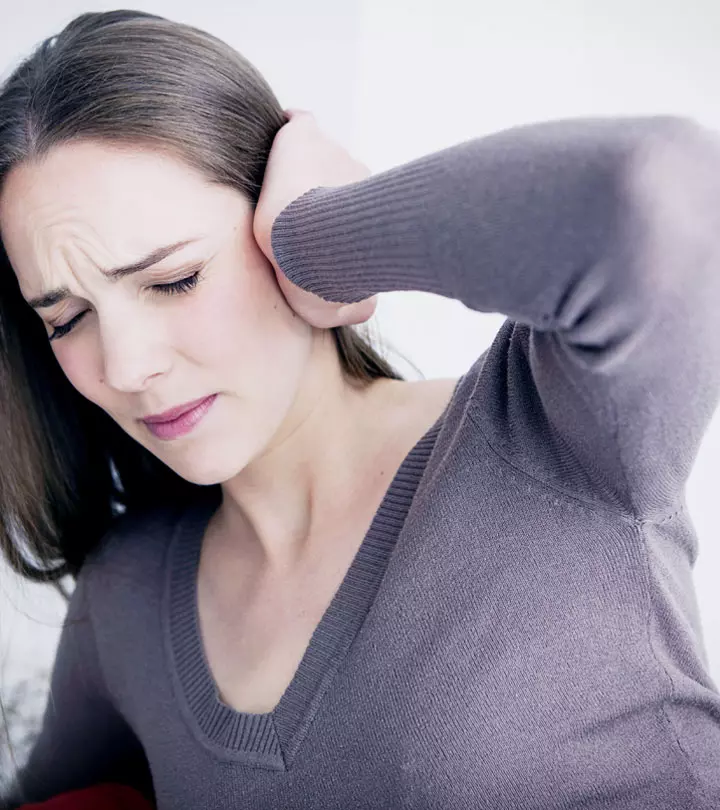
Image: shutter-stock
Children are more likely than adults to develop ear infections. Infections can be caused by a variety of things, including viruses or bacteria, wax build-up, moisture build-up, allergies, and yeast infections (1). And if you are hesitant to use home remedies for ear infections, take a moment to travel back in time a few decades. Antibiotics, clinics, and painkillers were not available in the past. So, what do you think our forefathers did to deal with illnesses like this? That’s right, you guessed it. They relied on natural ingredients and herbal remedies to cure certain diseases and afflictions.
Is it safe to use natural or home remedies for ear infections? Yes, they are safe and effective, and most significantly, they have little or no adverse side effects. So, the next occasion your ear hurts or your child suffers from an earache, and you don’t know what to do, try one of these natural cures for ear ache relief and control the infection.
Note that we are talking about mild-to-moderate complaints that you can manage at home to avoid things going worse. However, a high fever, visible pain, and sobbing are all warning signals that you should see your doctor.
Here is a look at some of the common symptoms that may present themselves during an ear infection. Scroll down!
In This Article
Signs & Symptoms Of Ear Infection
When suffering from an ear infection, people can experience the following:
- Earache
- Feeling of fullness in the ear
- Feeling dull and ill
- Vomiting (rarely)
- Diarrhea (rarely)
It is obviously easier for adults to express the problem if they have an ear infection.
But, when it comes to infants, toddlers, and children, it can be tricky to find out that it is actually an ear infection that is troubling them. Infants usually start acting irritable or keep crying no matter what you do to calm them. They might also find it difficult to fall asleep. This difficulty in sleeping is also seen in toddlers and small children (1).
An ear infection can occur in any part of the ear.
a) Outer Ear Infection – also called swimmer’s ear or otitis externa, it involves infection in the outer ear and ear canal (2).
b) Middle Ear Infection – also called otitis media, the middle part of the ear that is located behind the eardrum is infected. The infection is usually accompanied by swelling and pain (2).
c) Inner Ear Infection – the fluid in the ear canal may travel to the inner ear and cause an infection. The symptoms of this are slightly different from the other ear infections as this part of the ear is responsible for maintaining the body’s balance (3). You may experience dizziness, vertigo, difficulty in balance, and problems with vision and hearing with this type of infection (4).
The following are natural remedies for ear infections that can help reduce the swelling and pain without having to swallow painkillers.
Caution
Never pour any liquid into your ear if you suspect a ruptured eardrum. Pouring any oil or liquid will only worsen the condition. An indication of a ruptured eardrum is a cessation of pain after a period of intense pain and liquid seeping from the ear canal. Many people attempt to treat ear infections with chamomile oil or eucalyptus oil, but these undiluted oils can cause more harm than good. If your ear is seeping liquid and the pain is unbearable, visit a doctor immediately.
Key Takeaways
- There are certain home remedies you can try that are effective in treating ear infections.
- Garlic has antifungal and antibacterial properties that may help treat ear infections.
- Mix equal portions of hydrogen peroxide and hot water the put a few drops of this solution in the ear while it’s warm.
- Other remedies you can try are tea tree oil, breast milk, salt sock, onion juice, ACV, castor oil, and herbs like echinacea and holy basil.
Home Remedies For Ear Infections
Ear infections can be really painful and annoying. Many people try to find ways to feel better at home during the initial stage. Here are 16 home remedies that use natural things to help you feel better and heal faster.
- Essential Oils
- Sweet Oil
- Garlic Oil
- Hydrogen Peroxide
- Tea Tree Oil
- Breast Milk
- Coconut Oil
- Apple Cider Vinegar
- Rubbing Alcohol
- Salt Sock
- Oil Of Oregano
- Onion Juice
- Garlic And Olive Oil
- Mullein Oil
- Castor Oil
- Herbs
1. Essential Oils For Ear Infection
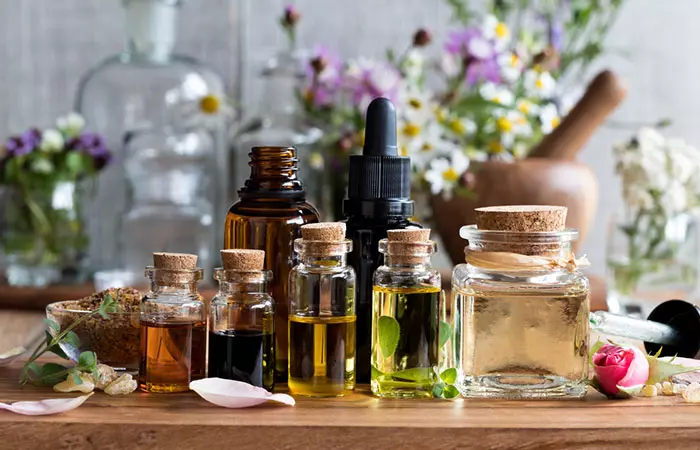
You Will Need
- 2-3 drops lavender essential oil
- 1-2 drops lemon essential oil
- 1/2 teaspoon coconut oil
- A small cotton ball
What You Have To Do
- Dab the lavender oil on one side of the cotton ball and place this in your ear. Do not push it inside. Place it in such a position that it does not fall out.
- Now, in the palm of your hand, mix the lemon oil and the coconut oil. Apply this mixture in a downward motion, starting behind the ear (at the top) and going towards the jaw. Do not use back and forth or upward motions.
- Continue massaging till you use up the entire oil.
- Leave the cotton ball in the ear till the pain subsides.
How Often You Need To Do This
Repeat after a few hours if the ear pain resurfaces.
Why This Works
This ear infection home remedy can be used for adults and children alike. Lemon oil has analgesic properties and the ability to alleviate pain (5). Lavender oil, on the other hand, possesses antibacterial and antifungal properties. It will cure the ear infection, thus also providing relief from ear pain (6, 7). Massaging the oils behind the ear helps open up the lymphatic systemi A network of tissues and vessels that collects excess liquid called lymph from the body tissues and sends it into the circulatory system. to drain the ear of infection. This makes it an effective remedy for ear drainage.
2. Sweet Oil For Ears
You Will Need
- A few drops of sweet oil
- A dropper
- A cotton ball
- You can use extra virgin olive oil if you do not have sweet oil.
What You Have To Do
- Slightly warm up the oil.
- Lie on your side with the infected ear facing upwards. Pour two to three drops of the oil into the ear.
- Lie in the same position for 10 to 15 minutes.
- Use the cotton ball to clean any oil flowing out of the ear when you sit up.
How Often You Need To Do This
Repeat this after a few hours to cure ear pain.
Why This Works
Seeing your child writhing in pain can be heart wrenching. But, do not despair. In most cases, ear infection or earache is a manifestation of the wax in the ears blocking the Eustachian tubesi A small passageway that connects the back of the throat to the middle ear and equalizes the air pressure inside the ears. and allowing an infection to take root. This blockage can be easily cleared with sweet oil. The oil will soften the wax or debris hardened in the ear, which can then be cleared by using a sterilized cotton tipped swab or a warm water ear syringe (8).
Note: Never insert a cotton swab fully into the ear because you can puncture the eardrum. Only use it to clean the part of the outer ear canal that you can see.
3. Garlic Oil
You Will Need
- 2-3 drops of garlic oil
- A dropper
What You Have To Do
- Warm the garlic oil a little and pour a few drops in the ear.
- Do this while lying on your side, with the infected ear facing up.
- Remain in the same position for about 15 minutes.
How Often You Need To Do This
Do this twice a day.
Why This Works
Garlic is a powerful antimicrobial agent. It kills bacteria and fungi efficiently and heals the ear infection. The warmth of the oil will melt any wax that might be building up inside the ear (9).
4. Hydrogen Peroxide For Ear Infection

You Will Need
- Hydrogen peroxide – 3%
- Hot water
- A dropper
What You Have To Do
- Mix equal amounts of hydrogen peroxide and hot water.
- Lie down comfortably with the affected ear facing upwards and put a few drops of this mixture that is warm, not hot into the affected ear.
- Lie in the same position for 10 to 12 minutes.
- Clean the ear drainage.
How Often You Need To Do This
Repeat, if required.
Why This Works
Hydrogen peroxide has the ability to degrade earwax. No wonder it is one of the best home remedies to remove earwax safely (10). This helps in relieving earache that is caused due to earwax build-up. It also has antibacterial and antifungal properties. Hence, it is a good ear infection medicine (11 , 12).
Note: Hydrogen peroxide can cause a bubbling sound in the ear as carbon dioxide is formed.
5. Tea Tree Oil For Ear Infection
You Will Need
- 3-4 drops tea tree oil
- 1/4 cup olive oil
- A dropper
- A cotton swab
What You Have To Do
- Mix the oils and lightly warm the mixture.
- Place a few drops of the oil in the infected ear and let it stay in there for a few minutes by keeping your head tilted sideways.
- Drain the oil, melted wax, and other impurities. Clean with a cotton swab.
You can also gently massage this oil mixture behind the ear and leave it on.
How Often You Need To Do This
Repeat this twice a day for a day or two, or until the ear infection is cleared.
Why This Works
Tea tree oil is a multifaceted essential oil that exhibits antimicrobial properties against a wide variety of bacteria, fungi, and even viruses (13). Along with the olive oil, it will also soothe any inflammation or irritation that may be present (14).
6. Breast Milk For Ear Infection
You Will Need
- Breast milk
- A dropper
What You Have To Do
Using the dropper, pour a few drops of breast milk into the infected ear at the entrance of the ear canal.
How Often You Need To Do This
Repeat every few hours to control and completely banish the infection.
Why This Works
If you are treating an infant, this is perhaps the best antidote for an ear infection and pain. Breast milk has natural antibodies that help speed up the healing process of any ailment, including ear infection (15). This remedy is great for immediate relief from inflammation and acute ear pain.
7. Coconut Oil For Ear Infection
You Will Need
- Coconut oil
- A dropper
- A cotton ball
What You Have To Do
- Put a couple of drops of liquid coconut oil in the ear. Open and close your jaw a few times so that the oil reaches all corners of the ear canal.
- Place the cotton ball in your ear so that the oil doesn’t leak out.
- Leave it in for 15 to 20 minutes.
How Often You Need To Do This
Do this twice a day.
Why This Works
The liposomali An artificial microscopic fat-soluble spherical vesicle that consists of an active drug inside of tiny, fat-like particles. lauric acidsi A white, powdery solid natural chemical compound found in plants and animals, mainly in coconut and palm oil. present in coconut oil have antimicrobial properties (16). Coconut oil also possesses analgesici A drug or substance that relieves different types of pain (headaches to injuries to arthritis), and inflammation. and anti-inflammatory properties, making this a complete home remedy to treat ear infection and its related symptoms (17).
8. Apple Cider Vinegar For Ear Infection
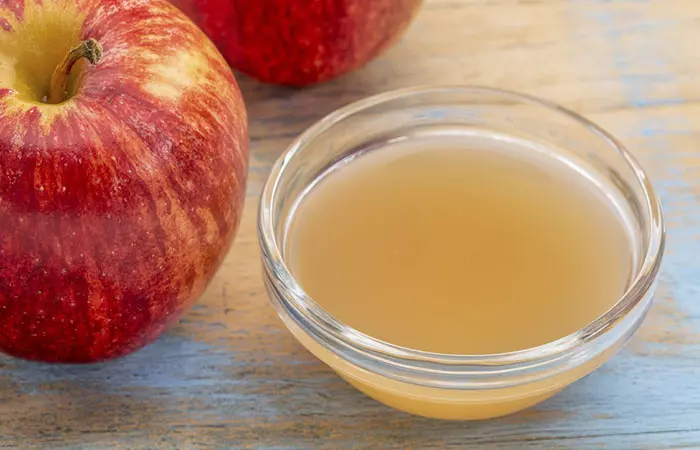
You Will Need
- 1 part apple cider vinegar
- 1 part water
- A cotton ball
What You Have To Do
- Mix the vinegar and water and soak the cotton ball in this mixture.
- Wring out the excess solution and place this cotton ball in your ear like a ear plug.
- Leave it on for five to seven minutes.
- Remove the cotton and carefully clean and dry out your ear and ear canal. You can use a hair dryer here.
Gargle with ACV if the ear infection is in the Eustachian tubes, which you will feel when you swallow.
How Often You Need To Do This
Repeat this twice or thrice a day.
Why This Works
ACV has anti-infective properties
. The topical application of ACV will kill the microbes causing the infection in your ear (18).
9. Rubbing Alcohol For Ear Infection
You Will Need
- Rubbing alcohol
- A cotton ball
What You Have To Do
Soak the cotton ball in the alcohol and gently drip three to four drops into the ear.
How Often You Need To Do This
Repeat this twice or thrice a day.
Why This Works
Alcohol is a disinfectant that kills microbes (19). It also dries up the excess water that may be causing the ear pain. This remedy works best for swimmer’s ear and can be used as a preventive measure.
Caution
Consult a doctor if you feel a burning sensation after putting in the alcohol.
10. Salt Sock For Ear Infection
You Will Need
- 1/2 cup sea salt
- A clean sock
What You Have To Do
- Heat the salt in a pan or microwave for five minutes.
- Put the salt into the sock and tie it into a ball by closing the open end with a band.
- Wait till it is bearably hot. Tilt your head slightly and gently place this on the ear or you could lie down with the salt sock under your ear.
Alternatively, use rice as a warm compress in the same fashion. Remember, rice will take longer to cool, so make sure you check how hot the sock is before you place it on your ear.
How Often You Need To Do This
Use this whenever your ear pains.
Why This Works
The heat will gently draw out any moisture, and the salt will absorb it. This will reduce the swelling and the pain (20).
11. Oil Of Oregano For Ear Infection
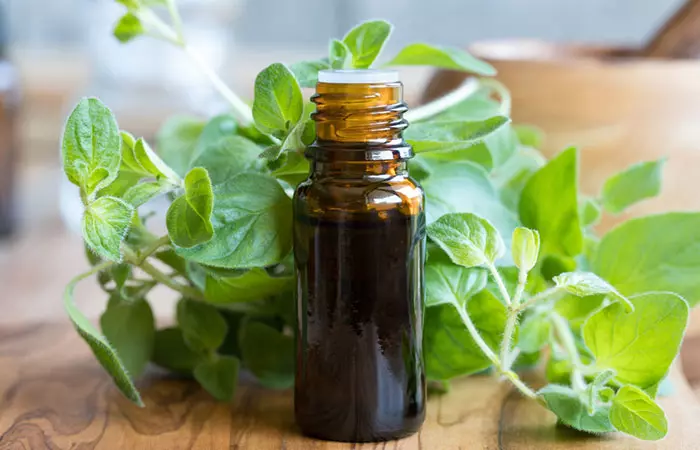
You Will Need
A few drops of oregano oil
What You Have To Do
- Rub the oregano oil on the outside part of the ear and also at the back.
- Leave it on.
How Often You Need To Do This
Reapply every few hours.
Why This Works
Oregano oil reduces the inflammation, swelling, and pain that occurs due to an ear infection (21). It also has antibacterial properties (22).
Caution
Never put oregano oil into the ear. Also, do not use this remedy if you are currently taking blood-thinning medication.
12. Onion Juice For Ear Infection
You Will Need
A small onion
What You Have To Do
- Warm or heat the onion, preferably in an oven, and strain the juice.
- Put several drops into the affected ear and after several minutes slightly tilt your head downwards to allow the liquid to flow out.
You may also use onion as a warm compress. Bake an onion for a good half an hour and wrap it up in a clean cloth before you place it near the ear.
How Often You Need To Do This
Repeat this every couple of hours till the ear infection is healed and the pain vanishes.
Why This Works
Onion is avoided by many for its pungent odor and the fact that it tears up the eyes. However, it has extensive medicinal properties. Warm onion juice can help relieve ear infection and swelling. It will draw the fluid out and heal the infection quicker (23).
Michelle Love, a blogger, shares a surprising remedy for ear infections involving the use of onions. She explains the simple steps that include heating an onion, extracting its juice, and applying a few drops to the affected ear. She writes, “The aching pain I had come to know so well remained gone for the days to come. I couldn’t believe it — all I needed was a cheap onion and an oven that whole time (i)“.
13. Garlic And Olive Oil For Ear Infection
You Will Need
- 2-3 cloves fresh crushed garlic
- 1/2 cup olive oil
What You Have To Do
- Cook garlic for a few minutes in the olive oil.
- Strain the oil and let it cool down a bit. Put a few drops into the infected ear for relief.
Alternatively, boil three cloves of fresh garlic and wait until they cool down. Then, crush them and add a pinch of salt. Put the mixture onto a clean napkin and place it against the infected ear for quick relief from pain.
How Often You Need To Do This
Do this twice a day.
Why This Works
Garlic is known for its antibacterial properties. This is due a compound called allicini A light yellow oily liquid that possesses anti-inflammatory and anti-bacterial properties. It is what gives garlic its odor. that is present in it (9). Olive oil has anti-inflammatory properties and also soothes the skin (14).
14. Mullein Oil For Ear Infections
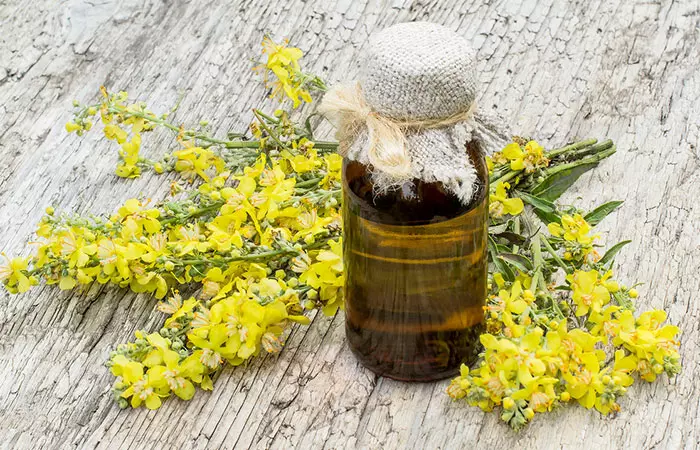
You Will Need
- 2-3 drops mullein oil
- A dropper
What You Have To Do
- Warm the oil a bit. Lie sideways with the infected ear facing upwards and pour a few drops in the ear.
- Remain in the same position for about 15 minutes.
- Allow the liquid to run out onto a cotton ball or tissue and clean the area.
How Often You Need To Do This
Repeat this twice a day.
Why This Works
Mullein has anti-inflammatory properties. It reduces inflammation by reducing the superoxide radicals that cause it. It is also antibacterial in action (24).
15. Castor Oil For Ear Infection
You Will Need
- A few drops of castor oil
- A cotton plug
- A cotton ball
What You Have To Do
- Slightly warm up the castor oil and pour a few drops into the infected ear before going to bed.
- Put in a cotton plug and sleep with this ear facing upwards.
- Clean the ear with a cotton ball the following morning.
How Often You Need To Do This
A week of this treatment is sure to produce wondrous results.
Why This Works
Castor oil has antimicrobial properties. Any harmful bacteria or fungi that may be causing the ear infection will be killed by the daily administration of the oil (25). Castor oil also stimulates lymphatic flow. The warmth of the oil will soothe the skin in the internal ear and also help dissolve the ear wax build-up. This is one of the best ear pain remedies.
16. Herbs For Ear Infection
(a) Holy Basil
You Will Need
A few holy basil leaves
What You Have To Do
- Crush a few holy basil leaves and apply the juice around the ear and a little on the ear.
- Make sure that the juice does not enter the ear canal.
- Leave it on.
When You Need To Do This
Repeat this every few hours.
Why This Works
Holy basil or Tulsi, as it is called in India, is said to have medicinal properties and will reduce the ear infection in a few days. It has broad-spectrum antimicrobial activity (26).
Note: It is not the same as the sweet basil used in cooking.
(b) Echinacea
You Will Need
- Echinaceai A perennial herb native to North America that relieves pain, boosts immunity and reduces inflammation. tablets or tincturei A solution or concentrated herbal extracts made by dissolving an extract of plant and animal in ethanol.
- Water
What You Have To Do
- Take 300mg of echinacea with water, either in the tablet form or by mixing the tincture liquid in a glass of water.
- For children, half the dosage prescribed for an adult (300/2 = 150mg) is recommended. However, it is also advised to confirm with your child’s doctor before giving him/her any echinacea.
How Often You Need To Do This
Take this two to three times a day for not more than two weeks.
Why This Works
Echinacea is known for its ability to enhance the body’s immune response. Daily consumption will help your body fight the ear infection better and quicker (27). It also has potent antiviral and antimicrobial properties that will kill the microbes causing the infection and give relief from the ear infection and earache (28).
Caution
Never pour any liquid into your ear if you suspect a ruptured eardrum. Pouring any oil or liquid will only worsen the condition.
 Quick Tip
Quick TipHere are some dietary and lifestyle changes you can follow when you have ear pain:
Diet
Avoid consuming cold or sour stuff when you are experiencing pain in the ear. Do not consume ice creams, pickles, and sour sauces.
Lifestyle
- Take a warm water bath.
- Do not go swimming during this period.
- Cover your ears or use earplugs to protect them from cold weather.
- Drink warm water.
- You can also consume turmeric milk.
 Quick Tip
Quick TipAn ear infection can leave you frustrated, but with these home remedies that you can begin at the first signs of infection, you can be assured of instant relief. Be sure to follow them diligently for best results. Also, please don’t forget to share your feedback with us in the comments section below.
Ear infections can be uncomfortable and painful to deal with. Scroll down to the next section to learn how to prevent them.
Tips To Prevent Ear Infections
- Avoid picking your ears with your fingers or sharp objects as it can hurt the delicate skin. If they are dirty, they may also cause germs to spread which can lead to ear infections.
- Research has shown that breastfeeding may help protect infants from various infections, including ear infections (29). Hence, consider breastfeeding if you have an infant.
- Limit the use of pacifiers among children as its use is linked to ear infections (30).
- Avoid smoking and other uses of tobacco as it is linked with a greater prevalence of middle and internal ear diseases in men (31).
- Take adequate treatments for upper respiratory infections as they may lead to otitis media (middle ear infection) (32).
Infographic: Tips For Managing Ear Infections
To help you manage an ear infection, we’ve added some simple pointers for you to follow. Maintaining basic hygiene and following proper ear care methods go a long way in minimizing infection risk. This may also prevent the infection from getting worse.
Check out the below infographic to learn tips for managing an ear infection. Illustration: StyleCraze Design Team
Ear infections can be caused by viruses or bacteria, wax build-up, moisture build-up, allergies, and yeast. It can occur in the outer, middle, or inner ear. Children are more prone to ear infections than adults. Earache, feeling of fullness in the ear, and feeling dull and ill are some of the symptoms of ear infection. The home remedies listed in this article may help relieve mild to moderate symptoms of ear infections. You can also opt for steam inhalation and try-salt water gargle to help soothe earaches. Sometimes, an ear infection can accompany a throat ache and cause the tonsils to swell. Warm ginger tea with honey might provide relief in such cases. However, if your infection is accompanied by severe pain and fever, consult your doctor immediately.
Frequently Asked Questions
Can home remedies replace antibiotics for ear infections?
Home remedies can help with mild ear infections, but they can not replace antibiotics if you have a bacterial infection. It is important to see a doctor to get the right diagnosis and treatment.
Are ear infections contagious?
No. It is not contagious. Krutika Nanavati, a nutritionist, says, “Ear infections are not contagious in and of themselves. However, the viral or bacterial conditions that can cause an ear infection, such as a cold or the flu, are contagious and can spread from person to person.”
Can Vicks help with ear infections?
Nanavati says, “While Vicks VapoRub can help relieve symptoms associated with cold and flu, such as congestion and minor aches, there is no definitive evidence that it can directly treat or cure ear infections.” She also cautions against applying it directly in the ear. It should be applied on the neck or chest.
Does turmeric help with ear infections?
Turmeric is renowned for its remarkable anti-inflammatory and antibacterial properties. However, further research is needed to substantiate this. Nanavati adds, “Emerging studies indicate that it may aid in alleviating inflammation linked to ear infections when used alongside prescribed treatments. Nevertheless, further research is crucial to substantiate these findings.”
How long does it take for antibiotics to cure an ear infection?
If you opt to take antibiotics to treat your ear infection, it is important to maintain a regular schedule. They usually start working in 24 to 48 hours. Fever, pain, and other symptoms usually disappear within 48 to 72 hours. If there is no difference even after 72 hours of taking antibiotics, please consult your doctor ASAP. When you take an antibiotic, be sure and take a probiotic.
What causes inflammation of the ear?
Infection is the main cause for inflammation inside and outside the ear. Inflammation can also be due to fluid build-up in the middle ear.
How long does an ear infection last?
An ear infection may last from a few days to more than a week, depending on how severe it is. The pain may come and go, but the underlying infection will still be present. Take proper care and use either home remedies or OTC antibiotics to treat the infection before it worsens.
When to see a doctor for an ear infection?
Be it for adults or children, it is always advisable to see a doctor if the ear infection does not lessen after two to three days. Other cases when you should call the doctor include:
• Fever above 101°F (38.3°C), especially in children
• Severe pain or dizziness
• Stiffness in the neck
• Redness, swelling, and/or pain around the infected ear, making it difficult to move that side of the face
• Fluid similar to pus or blood coming out of the infected ear (33)
What happens if an ear infection goes untreated?
An untreated middle ear infection may lead to complications such as tympanic membrane perforation, mastoiditis (infection of the mastoid bone of the skull), labyrinthitis (inner ear infection), meningitis, brain abscess, and hearing loss in some cases (34).
Will the ear infection go away on its own?
Possibly. In most cases, an ear infection resolves itself within 2-3 days. However, consult your doctor in case your infection persists.
How can you tell the difference between an earache and an ear infection?
Usually, an ear infection is accompanied by a host of complications like fever and inflammation, while earache is a dull pain that resolves by itself in a few days.
Illustration: Home Remedies To Ease The Discomfort Of Ear Infections

Image: Dall·E/StyleCraze Design Team
Discover effective home remedies and treatments for ear infections in this informative video. Say goodbye to discomfort and find relief with these natural solutions. Watch now and take control of your ear health.
Personal Experience: Source
StyleCraze's articles are interwoven with authentic personal narratives that provide depth and resonance to our content. Below are the sources of the personal accounts referenced in this article.
i. A Cheap & Natural Cure For Chronic Ear Infectionshttps://michelle-love.medium.com/a-cheap-natural-cure-for-chronic-ear-infections-969bed4231ee
Read full bio of Vd. Naveen Sharma
Read full bio of Kushneet Kukreja
Read full bio of Arshiya Syeda
Read full bio of Dipti Sharma





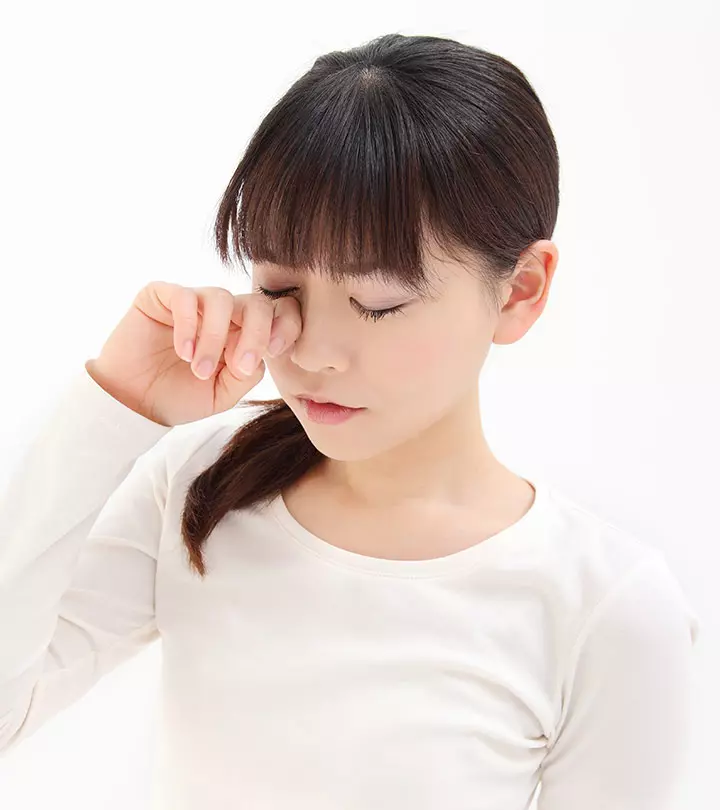
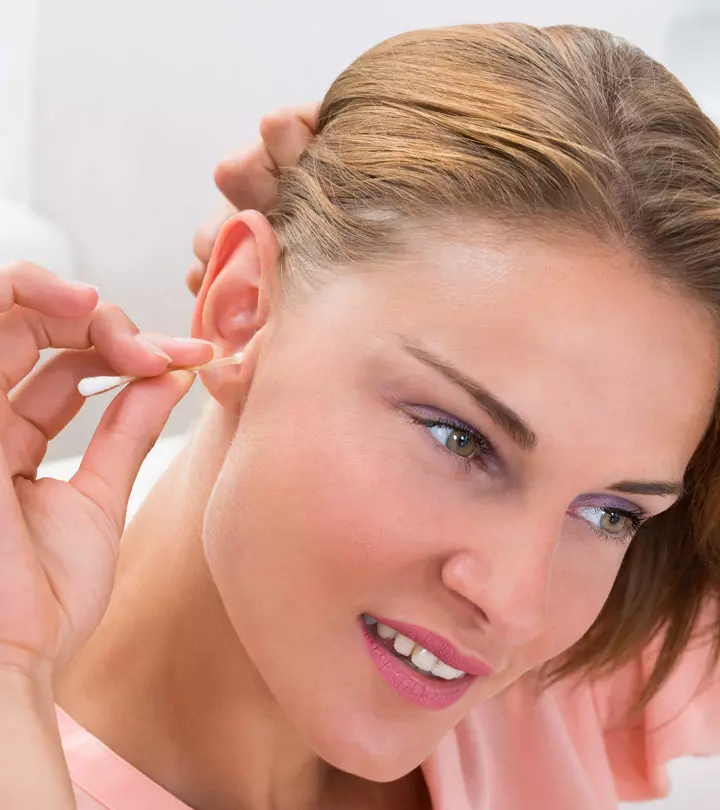



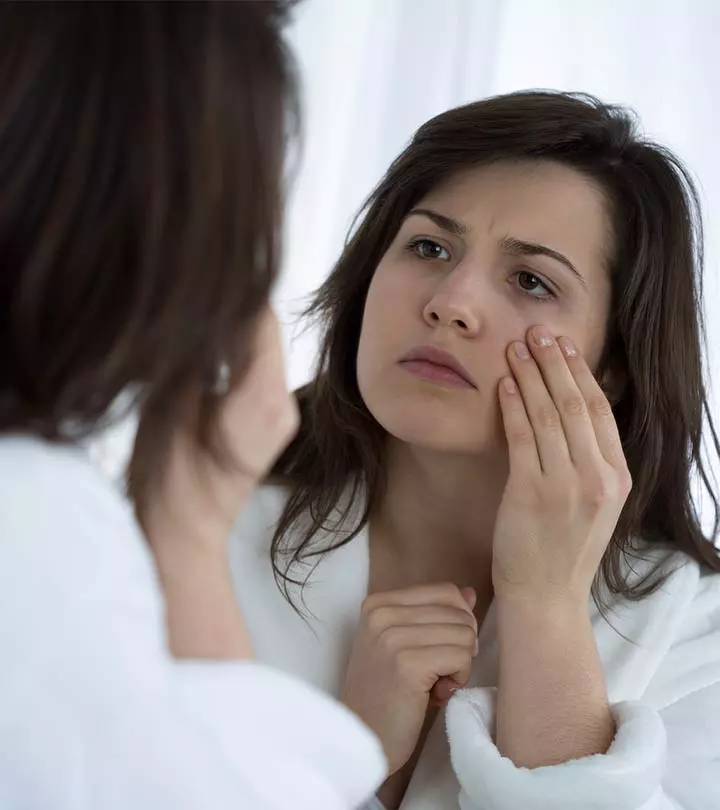

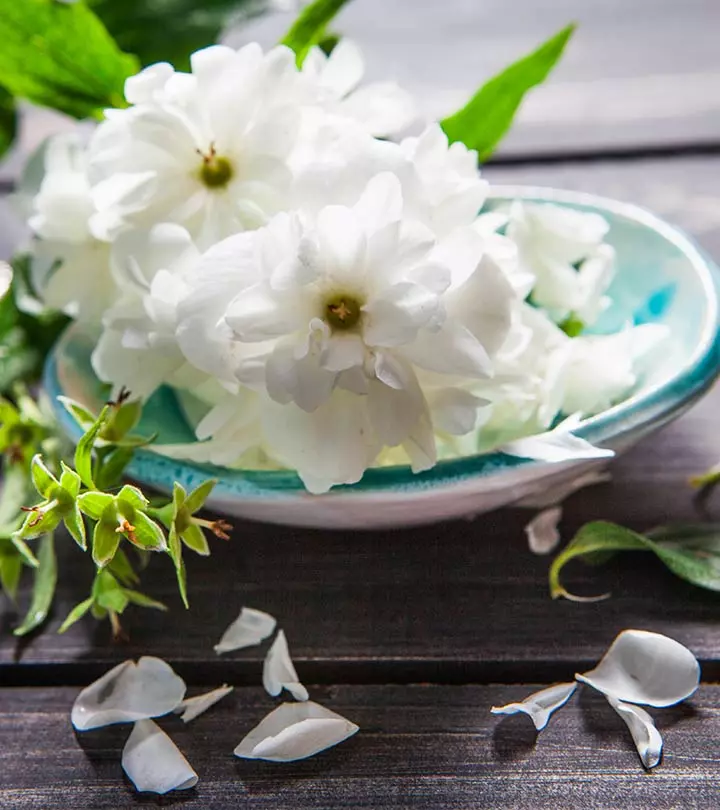







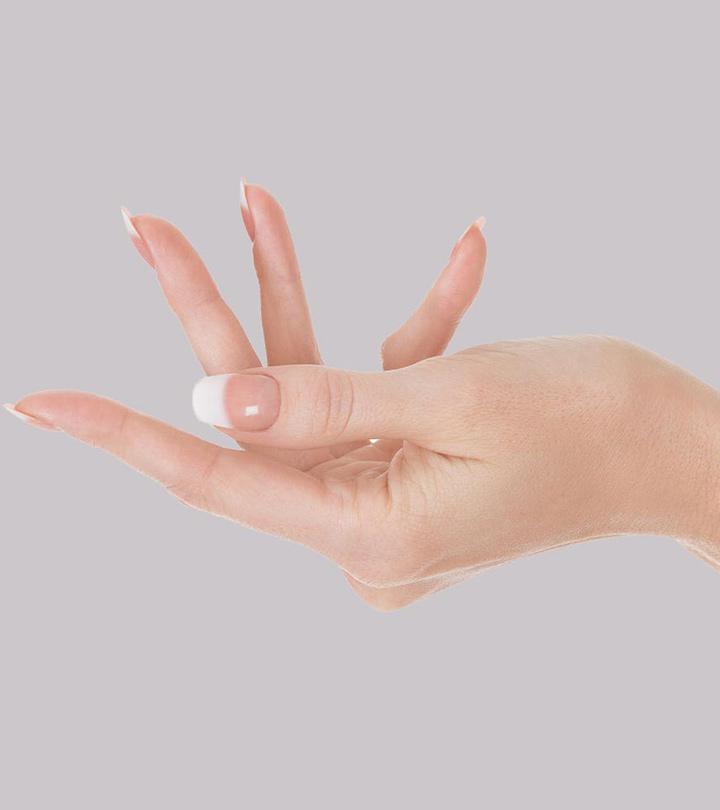





Community Experiences
Join the conversation and become a part of our empowering community! Share your stories, experiences, and insights to connect with other beauty, lifestyle, and health enthusiasts.